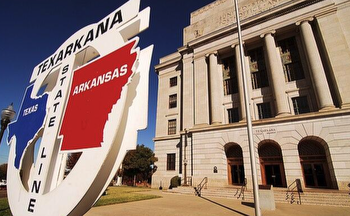Las Vegas Sands Amps Up Texas Casino Legalization Push, Mindful of

The battle to legalize casino gambling in Texas is gearing up once more with the influential Las Vegas Sands Corporation front and center, despite ongoing opposition and significant legislative barriers. After a show of strength in the 2023 legislature, Sands, owned by the notably affluent Adelson family with a net worth exceeding $30 billion, is doubling down on efforts to transform major Texan cities into casino resort destinations. Recently acquiring a majority stake in the Dallas Mavericks, their bullish investment signals a strong belief in the future alignment of Texas with the gambling industry, according to a Fox San Antonio interview with UTSA political science chair Jon Taylor.
While Las Vegas Sands rekindles its lobbying endeavors via the Texas Destination Resort Alliance, advocates faced a major setback last month with the primary defeat of several moderate Republicans potentially amenable to gaming interests, and it comes at a time when the House is seemingly veering further right, complicating the already formidable hurdle that the state’s top conservatives, like Lieutenant Governor Dan Patrick, have steadfastly placed in the way of gaming expansion. The move towards legalization is further plagued by strong opposition from social conservative groups and some religious organizations who have a significant lobbying presence in the state, and despite statewide polls indicating support for gaming expansion, surmounting the two-thirds majority required in both legislative chambers represents a steep political slope.
Opponents, including numerous conservative and evangelical groups, hold fast to their stance, citing moral grounds and potential social detriments as reasons against proliferation of gambling, as highlighted by Cocoadocs. They fear that expanded gaming could prey on the vulnerable, leading to increased crime and complex regulatory challenges while rewriting the societal fabric of their communities. Despite this, proponents continue to emphasize the potential economic windfall, job creation, and the precedent set by successful casino states like Nevada and New Jersey which have reaped benefits in tourism and tax revenue.
In response to slated opposition, the pro-casino block is deploying a wide-ranging strategy that involves lobbying lawmakers, grassroots campaigning, and leveraging media outreach to sway public opinion while also working to expand betting operations where gambling is already legal and pushing for new ventures such as sports betting and online gaming. Their hope is rooted in transforming not just local economies but also in the consideration of innovations designed to mitigate gambling's negative impacts, through responsible gaming initiatives and addiction prevention resources. It's a road fraught with challenges yet one that advocates, unfazed, are committed to trekking—believing in the industry’s potential to overhaul communities and stimulate economic progress.





































